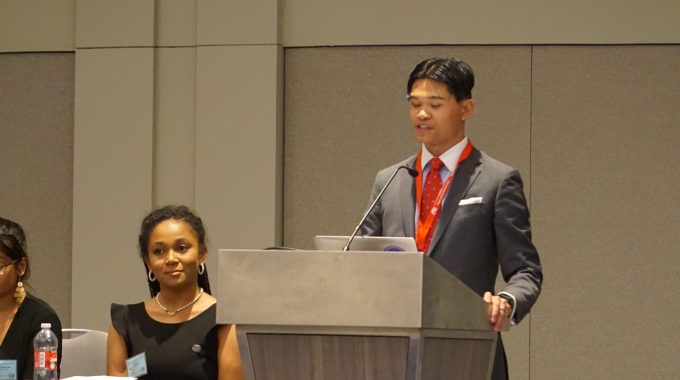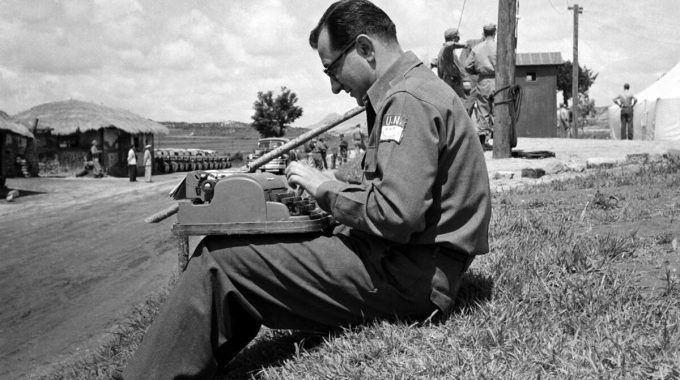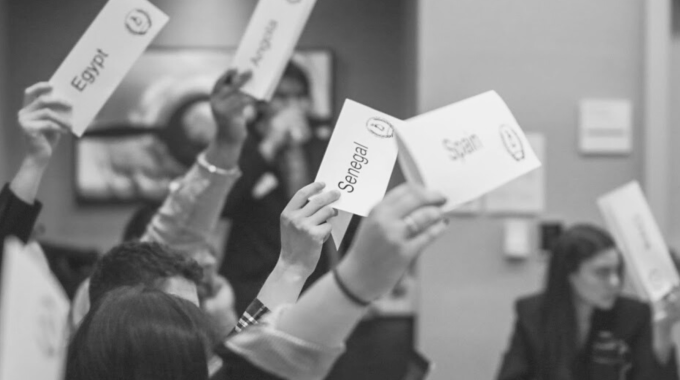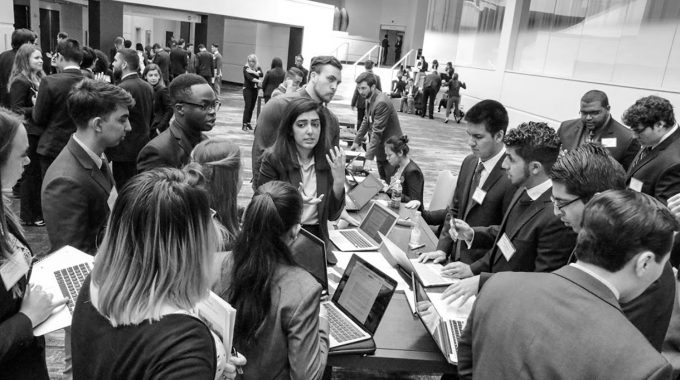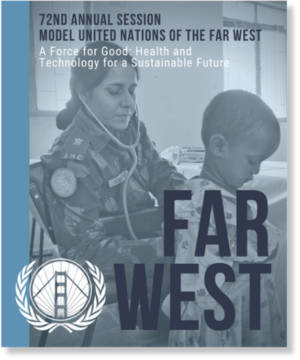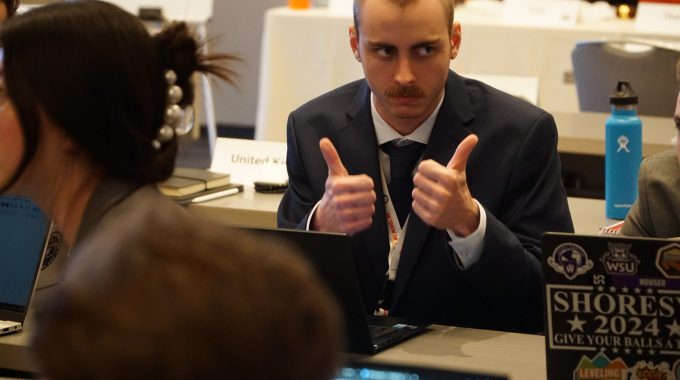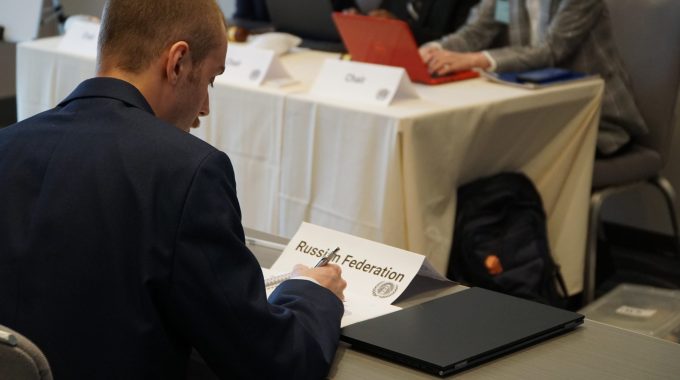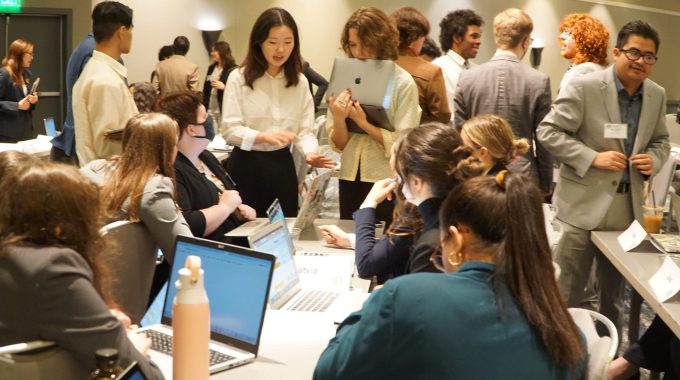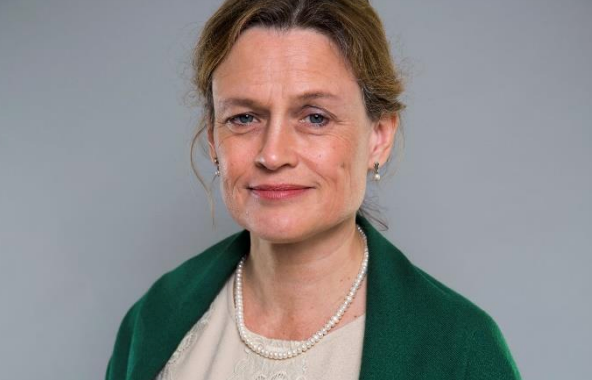CSTD – Summary
The second full day of The Commission for Science and Technological Development started much like the first. P27 after P27 trapped the group in chaos for a majority of the morning. The three dueling resolutions kept on dueling, with Cuba, The DPRK, and The Russian Federation leading the most passionate coalition. The day looked to be another slog through the murky waters of open caucus. I felt especially crestfallen when the delegate of Cuba declared “We support everything that is being said on that document. We do not support it being said [by the United States].”
The delegates broke for lunch without having made much progress, although all delegates reaffirmed that progress was being made. Somehow, these statements seemed much more genuine and hopeful than the worryingly similar statements from the previous day.
After lunch, those promises started to show their worth. Upon what was expected to be a quick open caucus, new players emerged on the field. Seemingly out of nowhere, Brazil stood up and took charge. A motion for a longer moderated caucus was proposed and passed before I had so much as a chance to open my laptop. With that, the delegate from Brazil joined forces with Cuba, The DPRK, and The Russian Federation. All of a sudden, a substantive debate was in full swing. The room was abuzz with excitement as the spirit of collaboration ran rampant through everyone involved. I even found myself caught up in the excitement. I had transitioned from a bored observer with a cold sandwich to an athlete, running across the room to snap pictures and collect sound bytes. Not even old rivalries could put a damper on the forward momentum that had taken hold over the Commission.
During a session of moderated caucus, Cuba called out the economic sanctions imposed on it by the United States, and in doing so spoke to the American delegate for the first time in the entire conference. The reply was curt, and was barely noted by the delegates. What the delegates did note was the passion and drive displayed by Brazil in arguing for a solution. What I found particularly striking was a statement they gave during a P23 speech. “The thought of the economic value of people is horrible.” Not only did they brazenly call out the U.S-led coalition’s stance, but they truly kicked the meeting into overdrive. It was soon after that the committee entered voting block, but not before a “potty break” co-sponsored by The Chair and the Russian Federation.
Once the committee had reassembled, the sense of optimism had begun to fight a feeling of worry, as if maybe Russia’s potty break had changed the beliefs of the entire group. Those fears were not to be easily dispelled. One by one, each delegate cast their vote for the first resolution. One by one, each voted yes. However, hope was short lived, with the delegate from the Philippines opting to pass on their vote until the end. Even without the Philippines, a majority was met. And then it kept growing. Every nation had voted with a resounding “yes.” With the vote coming to a close, only the Philippines remained. As the delegate uttered a triumphant “yes,” the sound of the gavel was drowned out by the sound of applause. The Committee had just passed its first resolution, and had done so unanimously. I even saw the normally stoic U.S. delegate crack a smile.
The next resolution was met with much similar reception, with only the Philippines voting no. The final resolution was subject to much more scrutiny, with the U.S. withdrawing its sponsorship, only to be replaced by Russia. However, no amount of strife could prevent the final resolution from being passed. After its passage, a P27 was called, and the delegates mingled, riding high off their victory. Panama discussed their success with me, saying, “Procedural parts are kind of hard to wrap your head around initially, but I think that once they click, they click, and it’s very intuitive.” The delegate of Latvia went so far as to demonstrate his excitement with a backflip in the atrium.
However, the euphoria couldn’t last forever. Soon the delegates got back to work. Things weren’t quite the same though. Upon the first unmoderated caucus, I noted the U.S. and Cuba delegates talking to each other, and better yet, working on the same resolution. A third delegate, who asked to remain anonymous, told me “we’re besties now.”
Hayden Oliver
World Press Reporter
New Zealand


